Poultry Industry Hails Passage of CERCLA Reporting Exemptions in Omnibus
Washington, D.C.
U.S. poultry and egg producers praised Congress for passing legislation that provides farmers relief from federal emergency response laws that were never intended to apply to routine, non-emergency farming and ranching activities. Included in the omnibus government spending packaging approved by Congress was the Fair Agricultural Reporting Method (FARM) Act. The legislation reverses a federal circuit court ruling from last year and limits the circumstances in which farms would need to report air emissions from poultry and livestock operations under the Comprehensive Environmental Response, Compensation, and Liability Act (CERCLA). A May 1 federal court deadline was set to impose the reporting mandate on an estimated quarter-million farmers and ranchers. The burden of reporting emissions from the natural breakdown of manure has been removed by Congress including the FARM Act in the omnibus.
The National Turkey Federation, National Chicken Council, U.S. Poultry & Egg Association, and United Egg Producers appreciate this bipartisan effort from both houses of Congress. A week earlier, the House of Representatives had submitted a companion to the FARM legislation – the Agricultural Certainty for Reporting Emissions (ACRE) Act. Members of Congress who led the effort to pass the legislation included Sens. Deb Fischer (R-NE) and Joe Donnelly (D-IN) and Reps. Billy Long (R-MO) and Jim Costa (D-CA). Among the numerous original supporters of the measure were the Chairmen and Ranking Members of the Senate and House Agriculture Committees, Sens. Pat Roberts (R-KS) and Debbie Stabenow (D-MI), and Reps. Mike Conway (R-TX) and Ranking Member Colin Peterson (D-MN).
“All told, an additional 36 Senators and 90 Representatives ultimately co-sponsored the bills and stood up for the nation’s poultry and egg producers and processors,” said the poultry groups in a joint statement. “This united technical and legislative effort has been nearly 15 years in the making, and it is one of the most visible and essential demonstrations of support for U.S. farmers. Our deep appreciation for this action and bi-partisan cooperation cannot be overstated.”
The EPA had for 10-years exempted low-level continuous emissions of ammonia and hydrogen sulfide, a policy started by the Bush Administration and continued with the full support of the Obama Administration. The Federal Circuit Court of Appeals for the District of Columbia struck down the rule based on the court’s reading of the law, thus necessitating the need for decisive legislative action.
U.S. poultry and egg producers welcome the President signing the bill into law.
###
About the National Turkey Federation
The National Turkey Federation (NTF) is the national advocate raising awareness for its members’ products, while strengthening their ability to profitably and safely deliver wholesome, high-quality, and nutritious food to consumers worldwide. NTF represents growers, processors, hatchers, breeders, distributors, allied services and state associations. NTF is found at EatTurkey.org, ServeTurkey.org; on Twitter @TurkeyGal and @ServeTurkey; and on Facebook as Turkey.The Perfect Protein®
About the National Chicken Council
The National Chicken Council (NCC) represents integrated chicken producer-processors, the companies that produce and process chickens. Member companies of NCC account for more than 95 percent of the chicken sold in the United States.
About U.S. Poultry & Egg Association
U.S. Poultry & Egg Association (USPOULTRY) is the all-feather organization representing the complete spectrum of today’s poultry industry, whose mission is to progressively serve member companies through research, education, communication and technical assistance. Founded in 1947, USPOULTRY is based in Tucker, Ga.
About the United Egg Producers
The United Egg Producers (UEP) is a farmer cooperative representing egg farmer members from all across the United States. The member companies produce approximately 90 percent of the nation’s total egg production. UEP’s primary role is to develop programs for the members that address animal welfare, food safety, and the environment and to represent their interest in government affairs.
